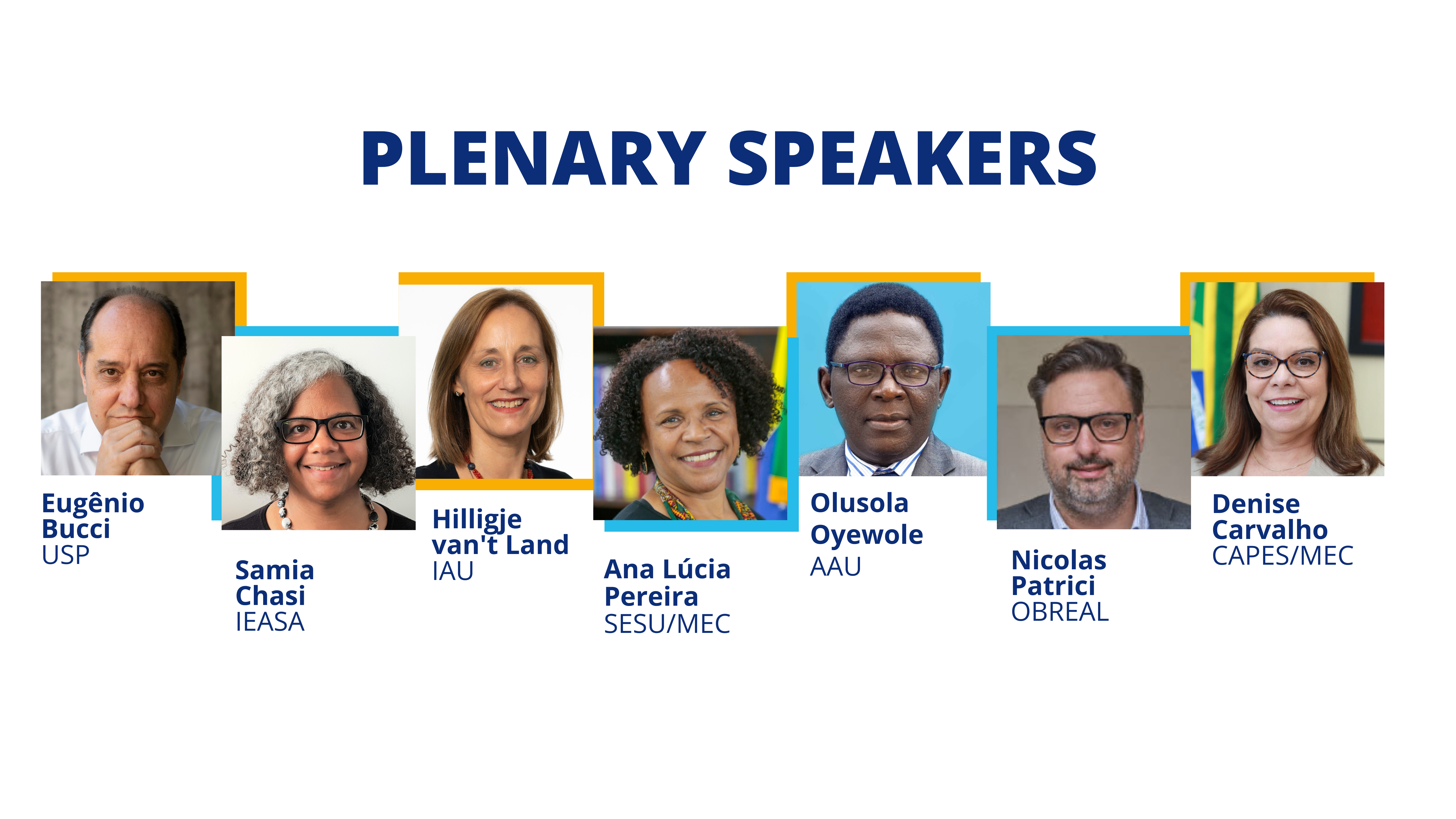

Eugênio Bucci is a Brazilian journalist and writer.
Full Professor at the School of Communications and Arts at the University of São Paulo (USP) and Superintendent of Social Communication at USP.
He has been editor-in-chief magazines and editorial secretary of the Brazilian Publishing House Abril and president of the Brazilian Communications Company – Radiobrás (2003-2007).
He is the winner of several awards, including the 2011 Excellence in Journalism Award from the Inter-American Press Association. He is a columnist for the Brazilian newspaper O Estado de S. Paulo.
He researches ethics and the press, public communication, the superindustry of the imaginary, information and democratic culture.
He is the author of The State of Narcissus (2015), The crude form of the protests (2016), Is there democracy without factual truth? (2019), The superindustry of the imaginary (2021) and Uncertainty, an essay: How we think about the idea that disorients us (and orients the digital world) (2023).

Samia Chasi is an international education practitioner, researcher and facilitator with more than 20 years of experience in international education.
She is currently the manager of strategic initiatives, partnership development and research at the International Education Association of South Africa (IEASA) and is a Researcher Fellow at the University of the Free State, South Africa.
Her passion for education and commitment to social justice and inclusion permeate her work, including the development and management of partnerships, programmes and projects. She facilitates deeper understanding and connections between diverse people and institutions by creating spaces for critical engagement and constructive dialogue.

Hilligje van’t Land is Secretary General of the International Association of Universities (IAU) – global NGO with UNESCO Associate Status. For the past two decades, she has fostered the key role of higher education in societal transformation.
She positioned the IAU as partner in UNESCO work on Education for sustainable development and in the UNESCO Futures of Education initiative, and higher education as a key stakeholder for the UN Agenda 2030 – Transforming our world.
She represents IAU in various working groups and expert committees.
She holds a PhD in comparative francophone literature, speaks six languages and published on higher education issues of relevance locally and globally.

Nicolas Patrici is Senior expert in higher education policy and Director of Strategy and development of OBREAL Global, an interregional cooperation association that brings together universities and associations of universities in Europe, Latin America and the Caribbean, Africa, the Middle East, India and Asia.
Originally from Argentina, he has been living, working, and studying in Europe for two decades.
He has studied in Spain, the Netherlands, and France, and holds a Ph.D. degree in classical philosophy.
He is fluent in Spanish, English, and French.

Olusola Bandele Oyewole is a Nigerian professor of Food Science and Technology, specifically Food Microbiology and Biotechnology.
He is the former Vice Chancellor of the Federal University of Agriculture, Abeokuta, Nigeria and has also worked as a Senior Expert in Higher Education for the African Union Commission in Ethiopia.
He is Secretary-General of the Association of African Universities (AAU).
He has served as a Senior Expert (Quality Assurance, Mobility and Scholarships) at the Department of Human Resources, Science and Technology of the African Union Commission (2009-2010).
His work experiences at the national, regional and continental levels have endowed him with a wealth of knowledge in coordinating multinational research and development programs.
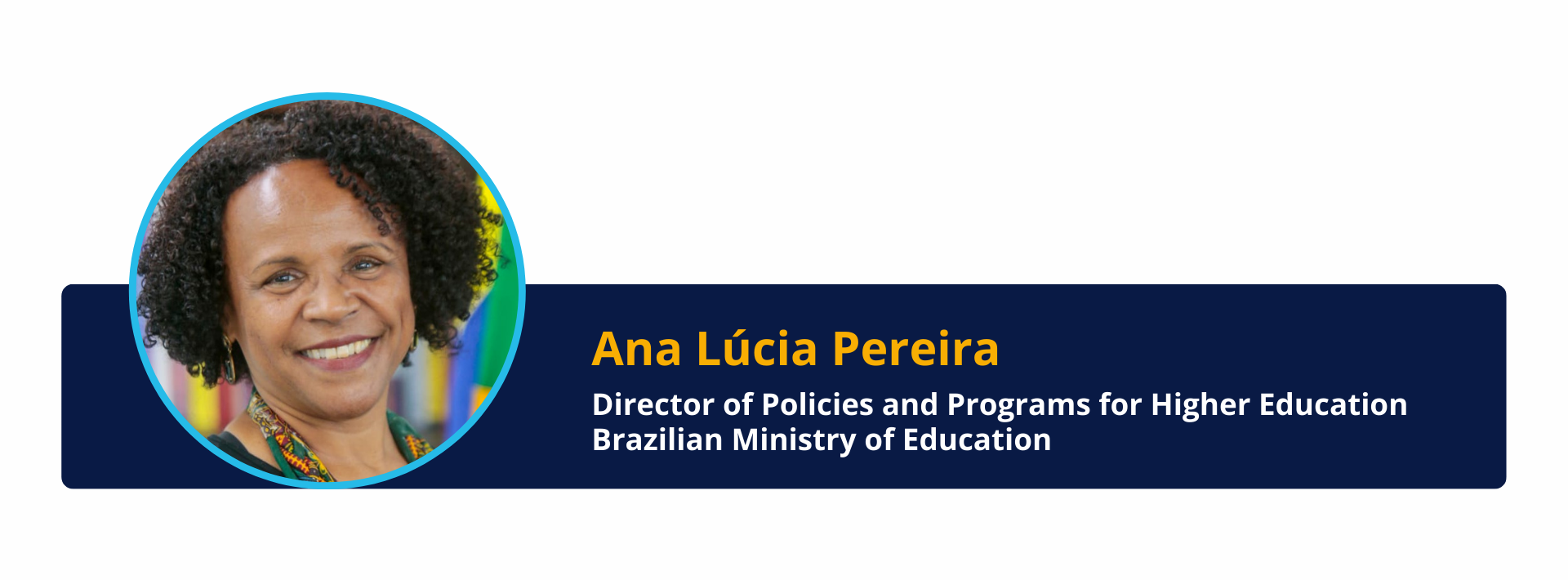
Ana Lúcia Pereira is the Director of Policies and Programs for Higher Education at the Higher Education Secretariat of the Ministry of Education.
She holds a Ph.D. in Sociology from the São Paulo State University Júlio de Mesquita Filho – Faculty of Sciences and Letters, Araraquara Campus, with a Postdoctoral degree in Education from the Department of Education at the Faculty of Sciences and Letters (UNESP/Assis).
She is an Associate Professor Level I at the Federal University of Tocantins (UFT). She also holds a Master’s degree in History from UNESP Campus Assis. Her specialization lies in the field of domestic violence against children and adolescents at USP.
She earned her Bachelor’s and Teaching degrees in Social Sciences from UNESP, Marília Campus. She is the Coordinator of the “Ethnic-Racial Equality and Education” Extension and Research Center (IERE/UFT).
Her work focuses on the study of the Black population, emphasizing topics related to education, promotion of racial equality, food and nutritional security, culture, and human rights. She is the author of the book “Quilombola Families: History, Resistance, and Struggle Against Social Vulnerability, Food and Nutritional Insecurity in the Mumbuca Community – State of Tocantins” (2022).
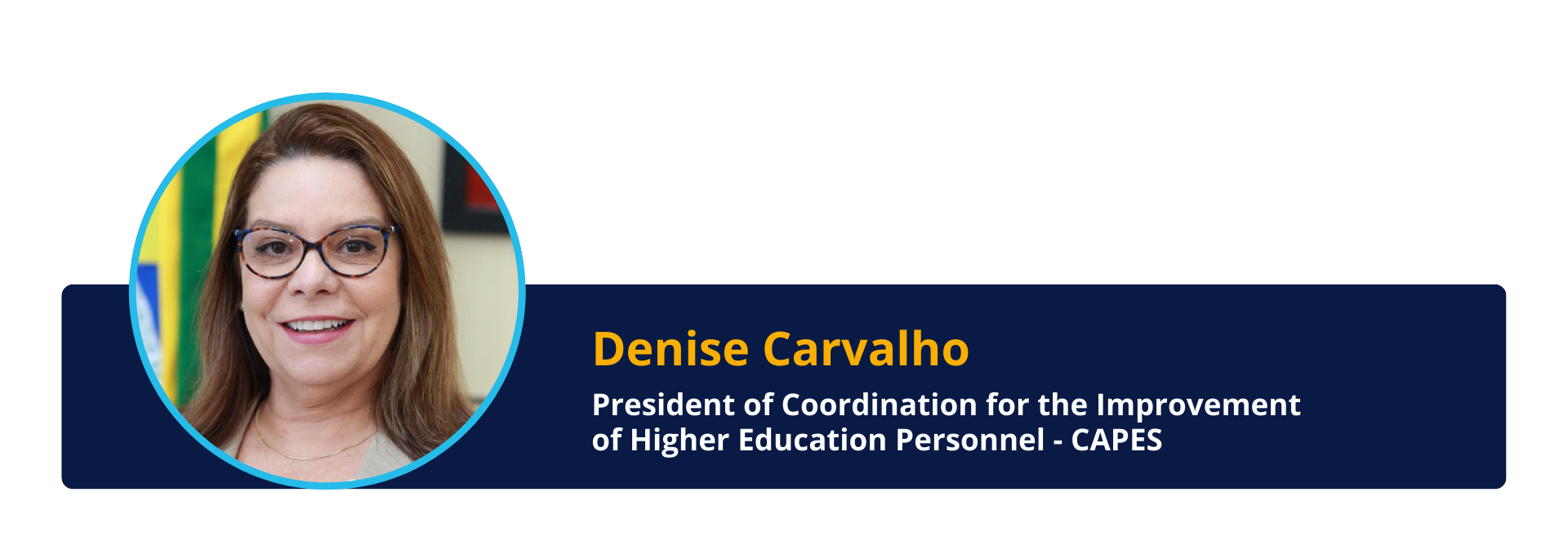
Denise Carvalho is President of CAPES – Coordination for the Improvement of Higher Education Personnel and former Secretary of Higher Education at the Brazilian Ministry of Education.
She is professor at UFRJ Carlos Chagas Filho Biophysics Institute, and was the first female president of the Federal University of Rio de Janeiro (UFRJ) (2019-2023).
She was also representative of Latin America on the Steering Committee of the Talloires Network of Engaged Universities, regional vice-president of the Inter-American Organization for Higher Education, vice-president of the Regional Conference of Rectors of Latin American Universities and President of the Group for International Cooperation of Brazilian Universities.
She has won several awards, such as the Senior Award from the Latin American Thyroid Society (2010) and the Makes a Difference, from the Brazilian newspaper O Globo.
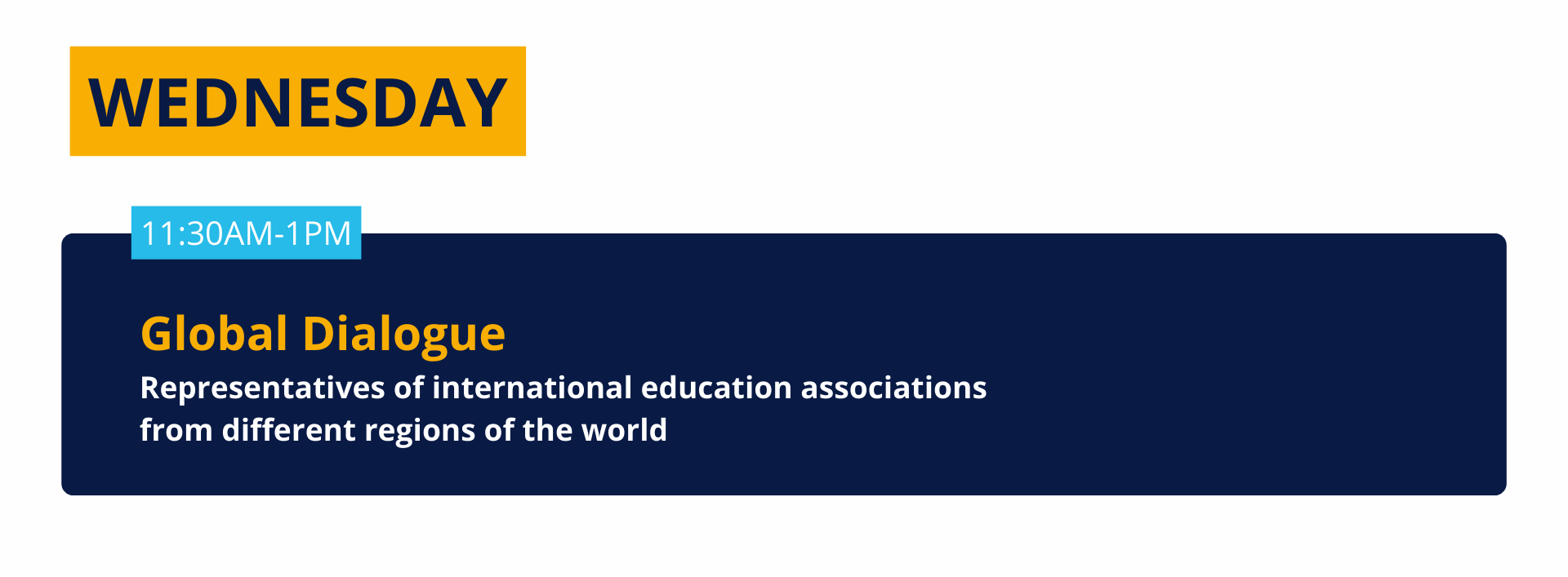
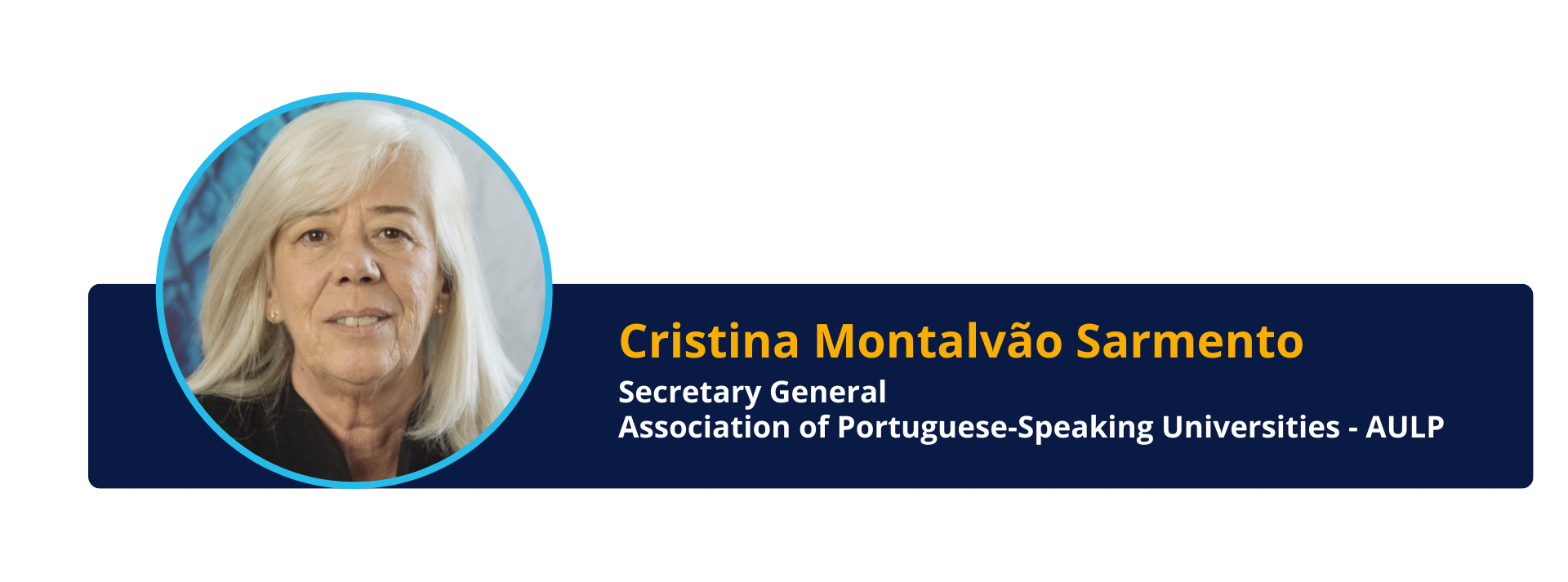
Cristina Montalvão Sarmento is Secretary-General of the Association of Portuguese-Speaking Universities (AULP) since 2006.
She is Vice-President of the International Association of Universities – IAU (2022-2026).
She holds a Ph.D. in Political Science, political theory. She is Associated Professor in Global Studies at the Institute of Social and Political Sciences at the University of Lisbon, Portugal, and Guest Researcher at the Laboratory of Power Networks and Cultural Relations at Rio de Janeiro State University, UERJ, Brazil.
She is founder and editor of Revista Portuguesa de Ciência Política (Political Observer) since 2010.
She is member of several Political Science Associations and was deputy assistant director for Research and assistant director of the Cultural History Centre at the Faculty of Social Sciences and Humanities, NOVA University Lisbon. She has several national and international publications.
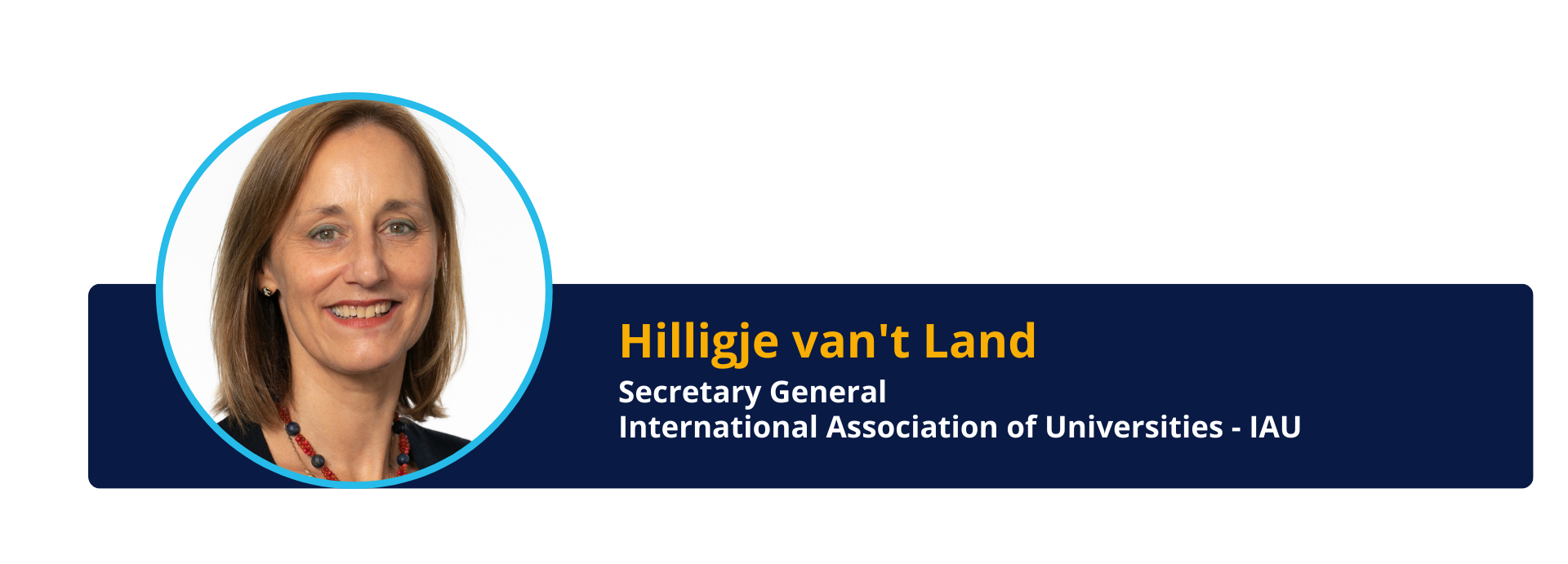
Hilligje van’t Land is Secretary General of the International Association of Universities (IAU) – global NGO with UNESCO Associate Status. For the past two decades, she has fostered the key role of higher education in societal transformation.
She positioned the IAU as partner in UNESCO work on Education for sustainable development and in the UNESCO Futures of Education initiative, and higher education as a key stakeholder for the UN Agenda 2030 – Transforming our world.
She represents IAU in various working groups and expert committees.
She holds a PhD in comparative francophone literature, speaks six languages and published on higher education issues of relevance locally and globally.
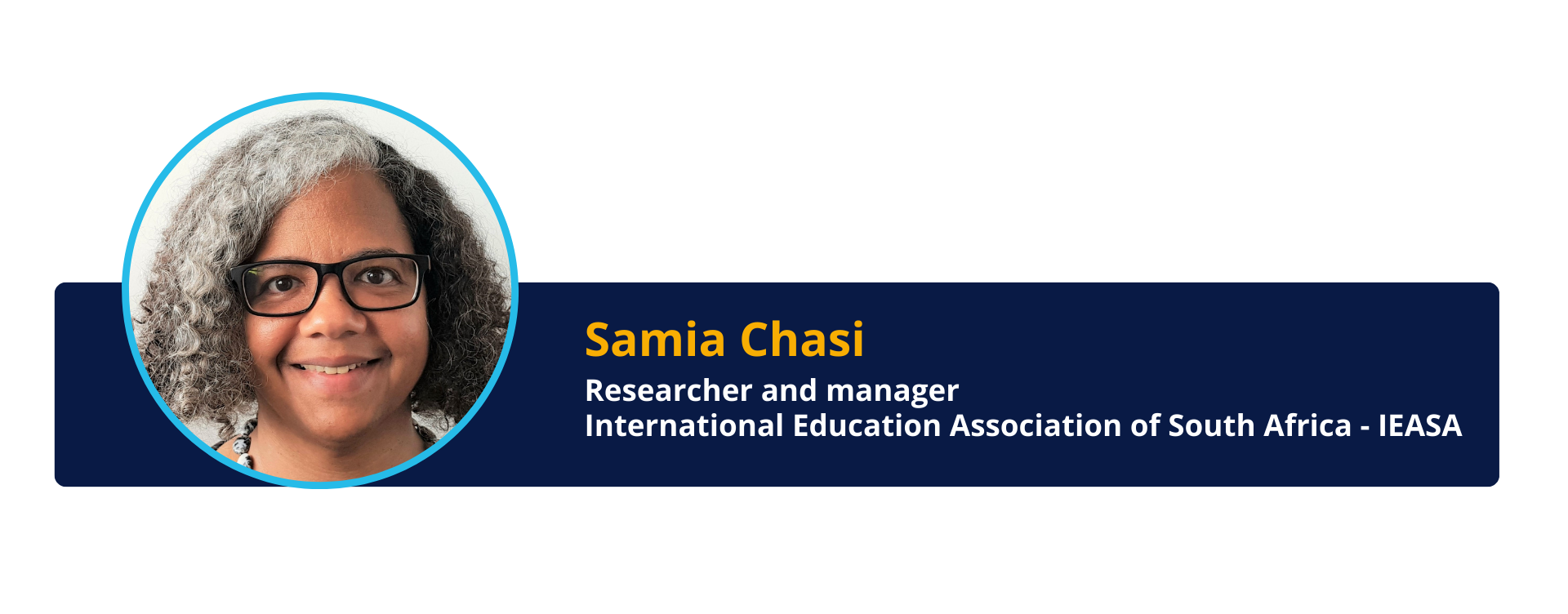
Samia Chasi is an international education practitioner, researcher and facilitator with more than 20 years of experience in international education.
She is currently the manager of strategic initiatives, partnership development and research at the International Education Association of South Africa (IEASA) and is a Researcher Fellow at the University of the Free State, South Africa.
Her passion for education and commitment to social justice and inclusion permeate her work, including the development and management of partnerships, programmes and projects. She facilitates deeper understanding and connections between diverse people and institutions by creating spaces for critical engagement and constructive dialogue.
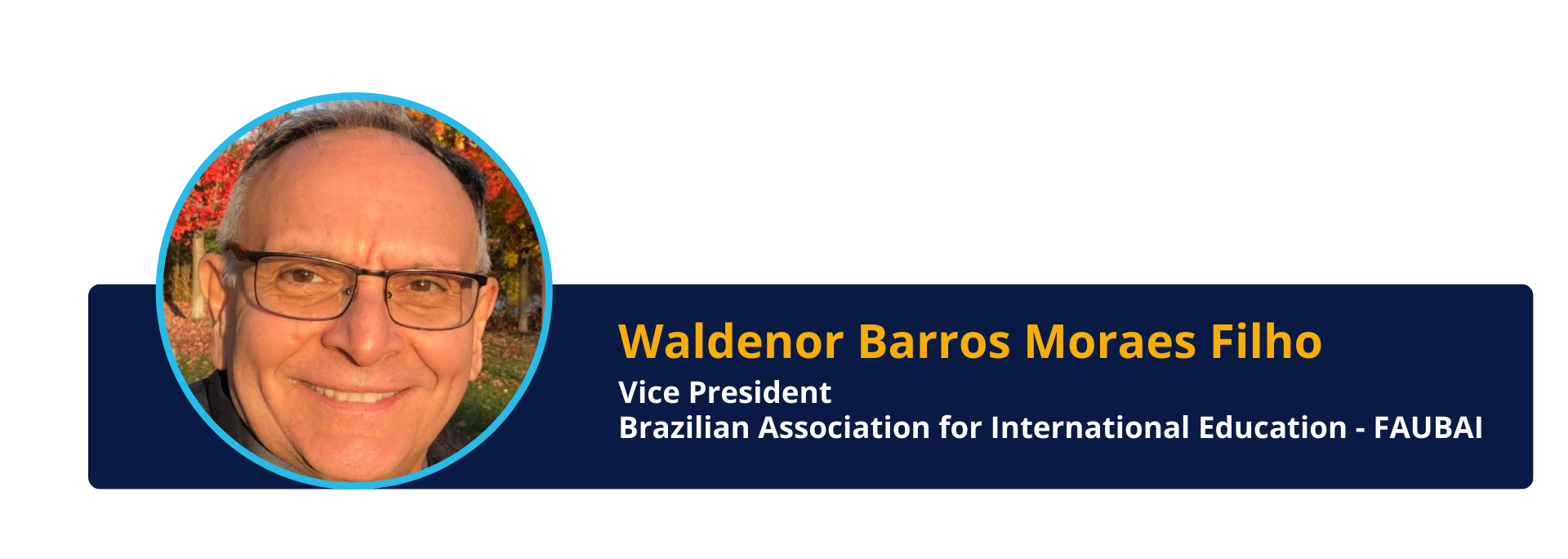
Waldenor Moraes has a degree on English language teaching and learning from University of Brasilia, MA and PhD in Linguistics from University of São Paulo.
Developed post-doctoral studies on internationalization and language policies at the University of Ottawa and supervises MA and PhD theses on teacher education and on language policies and internationalization.
Full-time tenured professor at the Federal University of Uberlândia (UFU) with experience in university management in several posts, such as provost of extension, provost of undergraduate courses and president of national committees.
He is currently the International Officer at UFU, vice president of FAUBAI (Brazilian Association for International Education) and vice-president of the Language Without Borders Network at the National Association of Rectors (ANDIFES).







